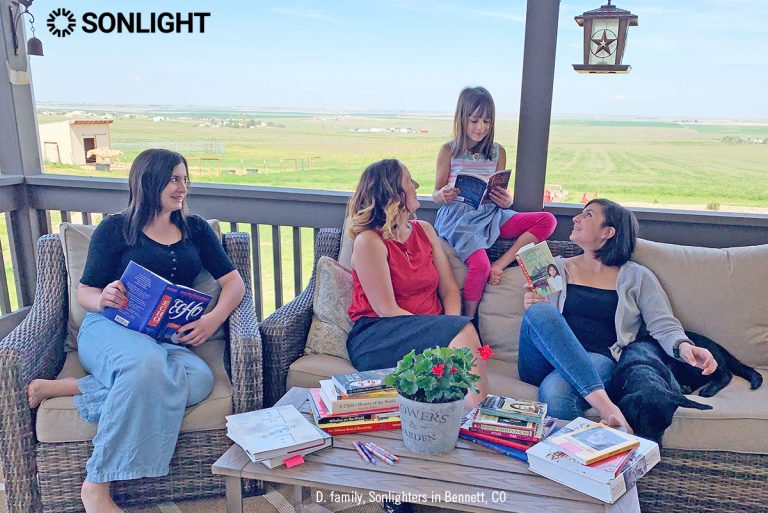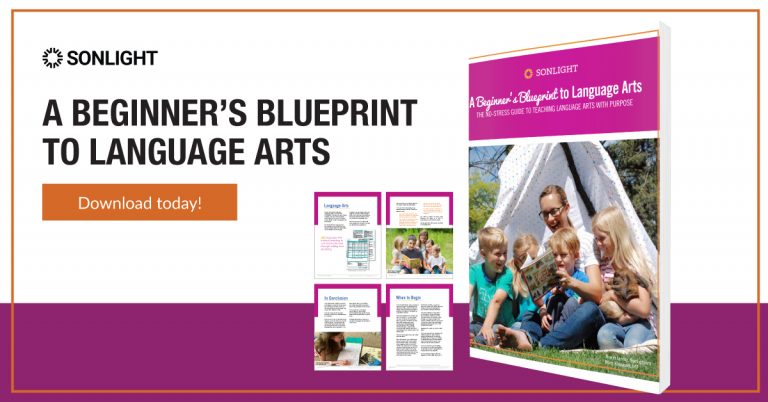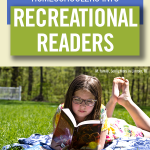
Most homeschoolers read a lot. This is especially true for those of us using a literature-rich curriculum like Sonlight. So much reading takes place that we may overlook an important aspect of our reading life—reading for pure enjoyment!
Reading for pleasure has a host of benefits that only grow as our children age. Studies show reduced levels of depression and stress in recreational readers. There is also significant data pointing to a reduced risk of dementia later in life for those who are avid readers. We can also add the benefits of increased
- academic success
- social skills
- self-awareness
- and general well being
While the reasons to read outside of school time are plentiful, the methods for encouraging children to read for pleasure are more debatable. Reward systems in place to encourage reading offer everything from a free book to a personal pan pizza to encourage reading. But do these programs really work long term?
In some cases, sure. The reward system is in place until the passion for reading takes over. For others, the reading is simply a means to an end, namely the reward.
So how do we as homeschoolers get our kids on board with reading as an enjoyable pastime?
While there are no guarantees, there are three things that, when used together, can help kids fall in love with reading:
- a good story
- a shared experience
- a desire to know
1. A Good Story
Stories have existed long before our language was written into books. They are a means by which we share our traditions and our heritage. We are fortunate to have Sonlight—a homeschool curriculum that offers stories to stimulate our hearts and minds. Sonlight books spark big questions and even greater conversations.
Think of the books in your life that really made an impact and share those with your children. As you read in your everyday life, share your excitement over books:
- Share exciting tidbits from your latest bedtime novel.
- Read aloud an expressive passage that really moved you.
- Recount the plot of a biography on a car ride.
These moments communicate to our kids that reading isn’t just for school time and is worth doing for pleasure.

2. A Shared Experience
Books are often better when shared. Homeschooling families benefit greatly from a family culture of reading aloud from preschool to high school graduation.
In my family, we are already in the habit of sharing great books. Here are a few of our favorite ways we deepen the experience.
Create a Book Club Culture at Home
- Get together to discuss books and have fun doing so!
- Avoid quizzing and instead aim for open-ended questions.
- Encourage kids to express their feelings about books and then listen to and value their opinions, especially when they are different from your own.
- Cook a meal or take a trip that fits the theme of a favorite book.
Keep the Experience Going
Find sequels or books by the same author. We love that Sonlight homeschool curriculum provides books that are first in a series. My children love the sequels to My Father’s Dragon, The Boxcar Children (both from HBL A), and Henry Huggins (from HBL B). Sonlight also features several Newbery Award Honor books, which have inspired us to read more award winning titles.
Consider movie or audiobook formats of the stories you love most. Dr. Dolittle (from HBL A) and Charlotte’s Web (from HBL B) were wonderful opportunities for family movie night! The Penderwicks (from HBL C) is fabulous as an audio book and the first in a series that has seen us through many a car trip.
3. A Desire to Know
As homeschoolers, we are committed to raising lifelong learners. Reading for enjoyment is a great way to pursue unique interests and dig deeper into topics in our curriculum that arouse curiosity.
Even the most reluctant readers are tempted by books on topics about which they are passionate! Star gazers, equine enthusiasts, and chefs all read to obtain information and increase their skills. When your child finds a passion (however short-lived), capitalize on it by providing stacks of non-fiction, biographies, and historical fiction on that same theme. The passion for the topic may be enough to move hesitant readers to pick up a book in their free time.
A love of reading grows through doing. Invite your children to share a reading life with you by offering good stories, sharing the experience of reading with them, and finding ways to help them feed their need to know.
Yes, occasionally this means that you might be subjected to the storyline of a science fiction novel that bores you to tears or a long, long tirade on global warming. Yet with so much to be gained through pleasure reading, it’s worth it—for them and for us!
Language Arts includes so many pieces. How can you see the big picture? How do you know what to teach and when? This free guide will lay it out simply.








